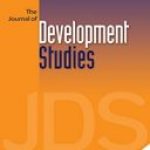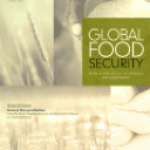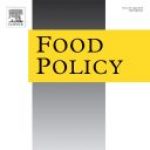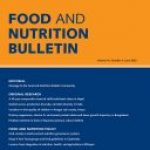Publication type: Journal Articles

The Role of Agriculture in Women’s Nutrition: Empirical Evidence from India
Abstract In this paper, we establish a statistically important relationship between household agricultural income and women’s BMI using a five-year panel dataset of rural households drawn from 18 villages across five Indian states. Using within household variation over time, we estimate both the extent to...

Soil Health Characterization in Smallholder Agricultural Catchments in India
Abstract Soil health (SH) of managed lands in India is affected by anthropogenic activities such as nutrient mining, excessive tillage, and monocropping, which reduce the productive capacity of soils. A comprehensive SH characterization was conducted in 27 catchments in six districts of Jharkhand, India. Each...

Does Non-farm Income Affect Food Security? Evidence from India
Abstract Livelihood diversification through greater non-farm activities has been considered as an important mechanism to propel growth, lower rural poverty and augment farm income across developing countries. Little, however, is known about its implications for nutritional outcomes such as dietary diversity. Using a nationally representative...

Adapting the Women’s Empowerment in Agriculture Index to Specific Country Context: Insights and Critiques from Fieldwork in India
Abstract The Women’s Empowerment in Agriculture Index (WEAI) is a direct, multi-dimensional measure of women’s access to resources and decision-making in various domains of agriculture. However, several challenges characterize its use: adaptation of questionnaires to local agricultural contexts, modifications to index construction once underlying activities and adequacy thresholds are...

Women’s Empowerment and Nutrition Status: The Case of Iron Deficiency in India
Abstract In this paper we study the relationship between women’s empowerment in agriculture and their iron deficiency status in Maharashtra, India. This is the first time the Women’s Empowerment in Agriculture Index (WEAI) has been used in association with explicit measurement of medical biomarkers for...

Nutritional Outcomes of Empowerment and Market Integration for Women in Rural India
Abstract Over half of all women of reproductive age are affected by anaemia in India. In this paper we study the role that both household market integration and women’s empowerment in agriculture can play in determining women’s dietary diversity. Our analysis is based on primary...

Market Access, Production Diversity, and Diet Diversity: Evidence From India
Abstract Background: Recent literature, largely from Africa, shows mixed effects of own-production on diet diversity. However, the role of own-production, relative to markets, in influencing food consumption becomes more pronounced as market integration increases. Objective: This paper investigates the relative importance of two factors –...

Pandemics and food systems – towards a proactive food safety approach to disease prevention & management
Abstract Recent large-scale pandemics such as the covid19, H1N1, Swine flu, Ebola and the Nipah virus, which impacted human health and livelihoods, have come about due to inadequate food systems safeguards to detect, trace and eliminate threats arising from zoonotic diseases. Such diseases are transmitted...

Are Women in Rural India Really Consuming a Less Diverse Diet?
Abstract Background: It is widely considered that women have less diverse diets than other household members. However, it has been challenging to establish this empirically since women’s diet diversity is measured differently from that of other household members. Objective: In this article, we compare women’s...

Exploring Aflatoxin Contamination and Household-Level Exposure Risk in Diverse Indian Food Systems
Abstract The present study sought to identify household risk factors associated with aflatoxin contamination within and across diverse Indian food systems and to evaluate their utility in risk modeling. Samples (n = 595) of cereals, pulses, and oil seeds were collected from 160 households across...

